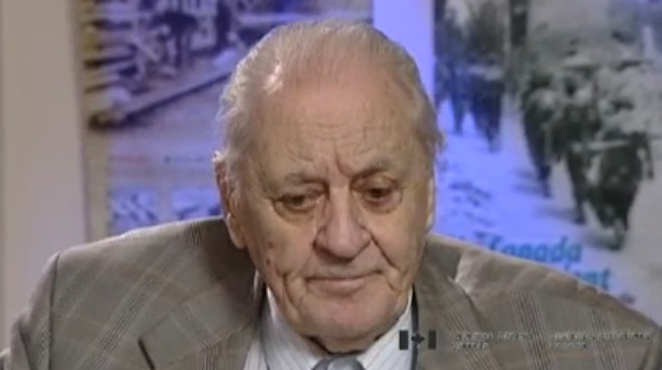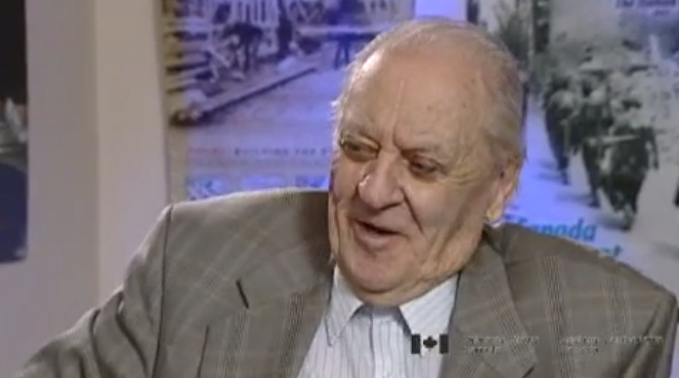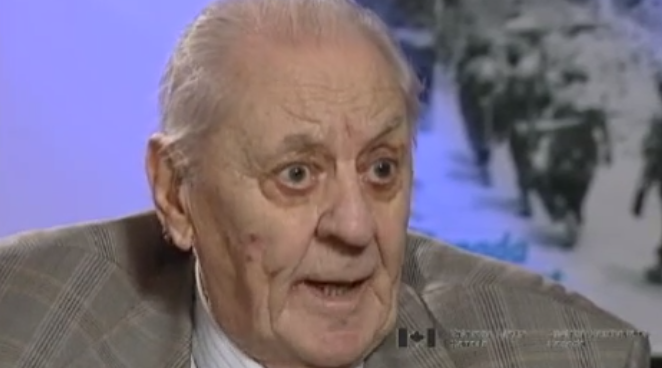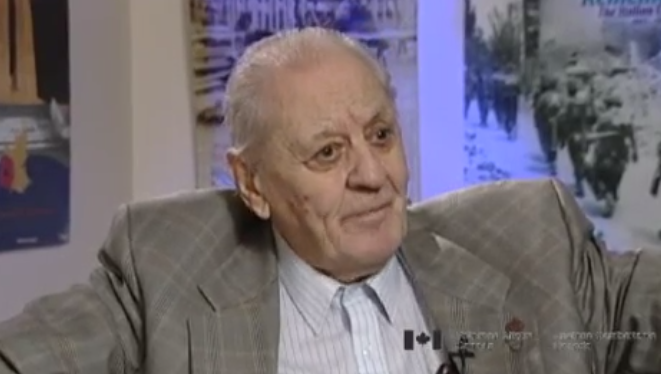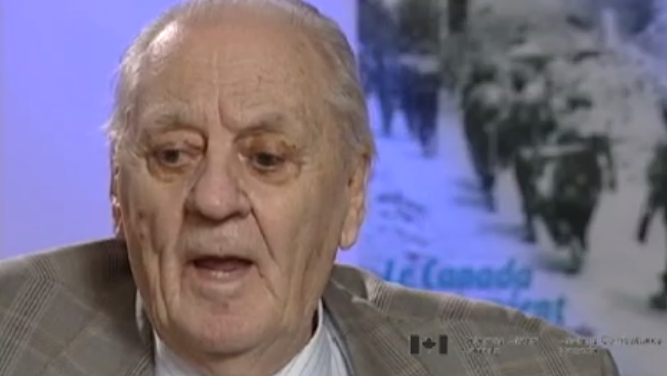I Don’t Consider I was Very Patriotic
Heroes Remember
I Don’t Consider I was Very Patriotic
Transcript
Description
Mr. Barron reflects on Remembrance Day and the fact that it wasn’t necessarily patriotism which induced him to enlist.
Reginald Roy Barron
Reginald Ray Barron was born in Greenfield, Hants Co., Nova Scotia, in 1922. His father was a farmer and a sawyer in the local lumber mill. As the only boy, Mr. Barron was expected to do much of the farm work; being tied down from dawn to dusk all year long didn’t appeal to him. He therefore lied about his age to enlist in June 1940, thus escaping his “primitive life on the farm.” After a short stint in the Princess Louise Fusiliers, he joined the Royal Canadian Artillery, with whom he spent two years in Newfoundland involved in coastal defense against the German Navy. Wanting to get overseas, in June 1944, he responded to a call for volunteers to join the 1st Canadian Parachute Battalion, with whom he served until war’s end. Mr. Barron saw limited action, only having been in Europe for the final two months of the war. He was wounded in the leg while in action. After returning home and before hostilities ended, he volunteered to go to Japan with his Battalion. Mr. Barron returned to school and studied law.
Meta Data
- Medium:
- Video
- Owner:
- Veterans Affairs Canada
- Duration:
- 3:02
- Person Interviewed:
- Reginald Roy Barron
- War, Conflict or Mission:
- Second World War
- Location/Theatre:
- Europe
- Battle/Campaign:
- Europe
- Branch:
- Army
- Units/Ship:
- 1st Canadian Parachute Battalion
- Rank:
- Private
- Occupation:
- Paratrooper
Related Videos
- Date modified:



